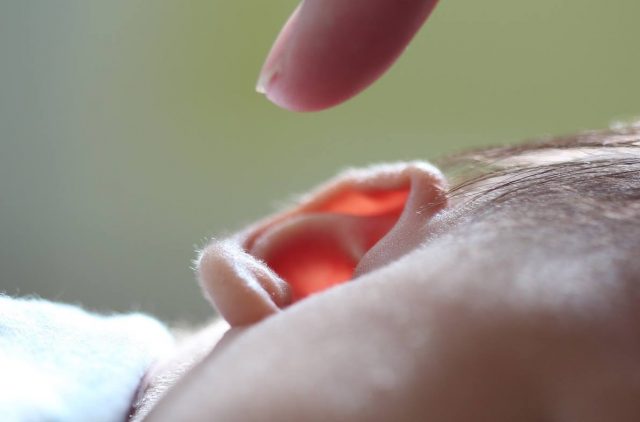When it comes to parenting, it’s easy to overlook subtle signs that might indicate potential issues with your child’s health. One crucial aspect that often goes unnoticed is their hearing. While it’s tempting to assume that your child can hear just fine, undetected hearing problems can significantly impact their development, education, and overall well-being.
As a concerned parent, you might be wondering, “Should I have my child’s hearing tested?” In this blog post, we’ll explore the importance of pediatric hearing tests and why you should consider them. Here’s why you should have your child’s hearing tested.
Early Detection
Early detection of hearing issues in children is paramount, as it can significantly impact their development and future prospects. Infants and young children are in critical stages of language acquisition and cognitive development. Hearing problems, if left unaddressed, can lead to delays in speech and language skills, affecting their ability to communicate effectively.
By identifying and addressing hearing impairments during the crucial early years, children have a much better chance of reaching developmental milestones on time, excelling in school, and enjoying a fulfilling, well-rounded childhood. For instance, a free online test can be a valuable resource for parents and caregivers to assess a child’s hearing abilities. These tests are simple and can be performed at home, offering a preliminary assessment of a child’s hearing health. Early detection ultimately sets the foundation for a lifetime of successful communication and learning.
Speech and Language Development
Speech and language development in children is intricately linked to their ability to hear and process sounds. Children learn to speak by imitating the sounds around them, and their comprehension and expression of language depend on this foundation. When hearing problems go unnoticed or untreated, it can impede a child’s ability to hear and produce speech sounds accurately.
Consequently, this can lead to delayed speech development, difficulties in understanding spoken language, and challenges in expressing themselves. Ensuring that a child’s hearing is optimal through regular testing can provide them with the best chance to master language skills, fostering effective communication and supporting their overall cognitive growth.
Academic Performance
Hearing plays a crucial role in a child’s academic success. In the classroom, children learn through listening, engaging in discussions, and following instructions. Hearing issues can disrupt this process, making it challenging for students to understand teachers, peers, or educational materials. Consequently, academic performance may suffer, leading to difficulties in reading, writing, and comprehension.
Identifying and addressing hearing problems through testing is essential for ensuring that children have an equal opportunity to excel academically. Timely interventions, such as hearing aids or classroom accommodations, can help students overcome these challenges and achieve their full potential in their educational journey.
Social Interaction
Healthy social interaction is a vital aspect of a child’s development, and it relies heavily on effective communication. Hearing difficulties in children can pose barriers to connecting with peers and family members. They may struggle to engage in conversations, follow group discussions, or interpret social cues, which can lead to feelings of isolation and frustration.
By conducting regular hearing tests, we can detect and address these issues early, ensuring that children have the opportunity to build strong social connections. This not only enhances their interpersonal skills but also contributes to their emotional well-being and self-esteem, creating a foundation for a fulfilling and well-adjusted social life.
For Safety
Hearing plays a pivotal role in a child’s safety. Auditory awareness of the surrounding environment is essential for avoiding potential hazards and responding to emergency situations. Children with hearing impairments may not hear important warnings, sirens, or signals, making them vulnerable to accidents and dangers.
For instance, they may not hear approaching vehicles, fire alarms, or instructions from caregivers in noisy environments. Regular hearing tests are a fundamental aspect of safeguarding a child’s well-being.
By ensuring their ability to hear and react to auditory cues, we provide an extra layer of protection, allowing children to navigate their surroundings with confidence and reducing the risks associated with impaired hearing.
To Enhance Communication Skills
Effective communication is a cornerstone of success in the modern world. The ability to convey thoughts, ideas, and emotions clearly is vital for personal, academic, and professional growth. Hearing plays a fundamental role in this process, as it enables individuals to receive and interpret spoken language. For children, honing communication skills from an early age is crucial for their development. Regular hearing tests help ensure that any hearing issues are promptly identified and addressed.
By optimizing a child’s hearing health, we empower them to develop strong communication skills, fostering self-assurance, and a capacity to connect with others. This proficiency becomes an invaluable asset, shaping their life journey with the ability to thrive in various social and professional contexts.
Regular hearing tests for children are an essential component of their overall well-being. Detecting and addressing hearing issues early on can profoundly impact their speech and language development, academic performance, social interactions, safety, communication skills, and, ultimately, their quality of life. By ensuring optimal hearing health, we empower children to navigate the world with confidence, enabling them to thrive, connect, and excel in various aspects of their lives. It is a fundamental investment in their future, fostering a foundation for success and happiness.



